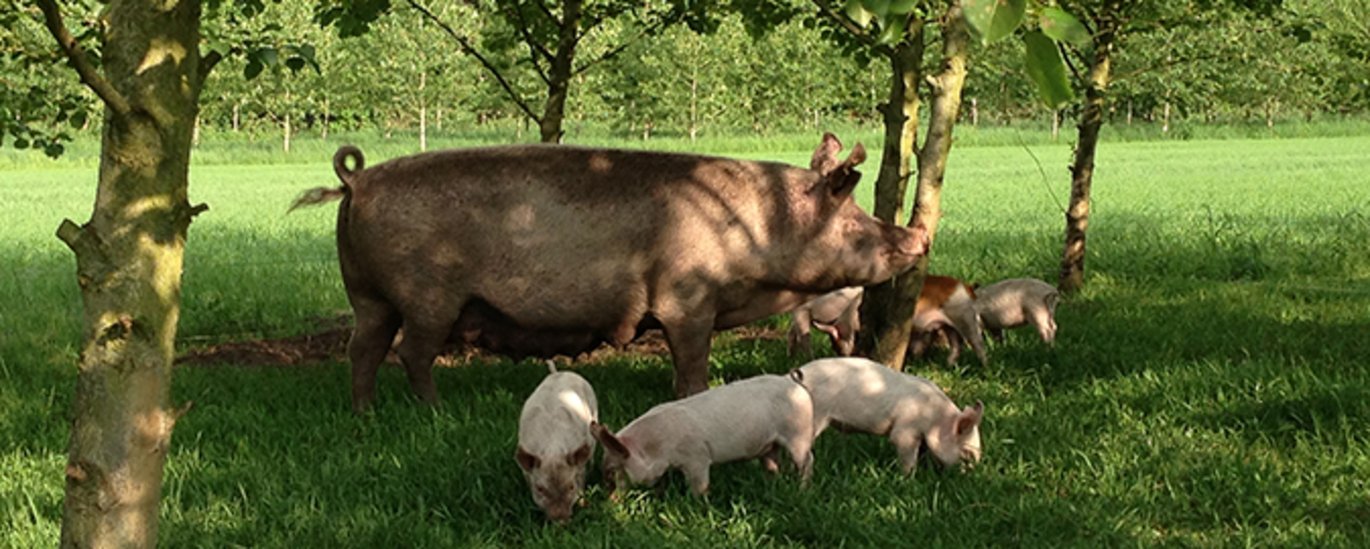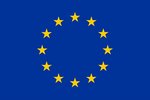Potentials, challenges and visions for future European organic animal farming across species
There is a serious need for significant and fundamental improvements to the way we currently produce and consume food if we are going to respond meaningfully to current global environmental challenges, and animal farming is particularly challenged to find new balances to contribute positively.

Coordinators or representatives of six different CORE-Organic projects and an editor of a recently published book on organic animal farming stand behind a keynote lecture to be presented at the virtual IAHA conference 21st–22nd September 2020. The paper goes across multiple animal species and experiences from projects and provides some future perspectives and thoughts on current challenges.
Identification of strategies for future development of European organic animal farming
In organic agriculture, animals are considered as living sentient beings and a key aim should be to enable, from the animal’s perspective, a life that is worth living. This implies that humans should provide the necessary conditions that allow farm animals to meet their natural needs. However, achieving this aspiration can potentially conflict with what can be considered an overarching goal of efficiently providing food for humans whilst also trying to meet wider sustainability objectives, such as reducing green-house gas (GHG) emissions and promoting biodiversity. Nevertheless, with reference to the organic principles, we are strongly guided towards finding solutions and synergies that have multiple aims. Values that are adaptable and relevant to different contexts and embrace diversity and resilience can guide developments towards husbandry practices that break with the ‘one-size fits all’ conventional intensification of farming that places undue pressure on animals as well as humans. In this paper, we will shortly outline our suggested six strategies for future European organic animal farming, which in different ways apply for each animal species, but are particularly important because they also support other ways of thinking about integrating animals into farms and landscapes, compared to the last half century’s increasing specialisation and industrialisation.
1) Integrating diversified multi-species systems
Diversity at the farm level, in terms of breeding two or more animal species on the same farm, has the potential to improve three dimensions of sustainability: environmental soundness, economic viability for farmers and social acceptability by being respectful of animals. This is in focus in the project MixEnable, which show for example interesting aspects of how guardian animals co-grazing with vulnerable species can support a significant reduction of predation.
2) Pastoralism, agroforestry and sustainable foraging which can integrate pigs, pasture and trees
Natural, pasture-based and more extensive production systems are sometimes viewed and criticized as inefficient. More and more evidence and recognition points to these systems as representing a form of food production that is not dependent on excessive fossil fuel usage and offers a vast carbon storage capacity. Several perspectives on these issues are investigated for different animal species in the current CORE Organic projects, and the book ‘Improving organic animal farming’ explores perspectives for different range and pastoral systems.
3) Finding new potentials for home grown protein feeds
The issue of home-grown protein feed crops is relevant for all animal species in organic production, and many organic farms rely on imported sources even though there are many good possibilities to grow protein feeds, even under Nordic conditions. We highlight the potential for improvements of organic animal farming with regard to, for example, balancing the protein and energy component of animals’ diets to ensure the lowest possible emissions, supported by appropriate breeding and efficient grassland management.
4) Adopting resilience as a core of health principle and developing strategies to significantly lower or phase out the use of antibiotics
Resilience is a core concept in organic farming at all levels, including the farm, system, herd and individual level. The relative resilience of an individual or group of animals will influence the occurrence and impact of disease. While the EU organic regulations allow antibiotics to be used in animal production, their prophylactic use is banned and reducing dependence on therapeutic use is encouraged along with a strong emphasis on health and welfare promotion. The actual use of antibiotic drugs in European organic animal farming compared to conventional animal husbandry is not comprehensively documented, but various aspects of health promotion and/or prudent medicine use are emphasised in all CORE Organic projects.
5) Emphasising appropriate breeding and breeds, including multipurpose and local breeds
In Northern Europe, it is common practice to use the same high-yielding breeds in organic production as in conventional animal production. This can provide a key challenge given the priority placed on natural elements of life, including outdoor living, longevity, natural behaviour and species-specific feeding. Some of these challenges can be met through more appropriate breeding strategies, including broadening the breeding goals to fit organic objectives and the use of cross-breeding, as well as breed diversity and the use and conservation of endangered breeds.
6) Enabling enhanced mother-infant contact
Two CORE Organic Cofund projects research cow-calf contact systems, which represents a fundamental shift from a common understanding of dairy herds focused entirely on milk production for consumers. However, the issue is not restricted to milk production and the fundamental ethological and economic issues apply to other animal species, including small ruminants, pigs and poultry.
Future perspectives
Many of the key challenges of global agriculture are also organic farming aspirations. Placing emphasis on four broad strategic categories associated with diversity, integration, resilience and communication could contribute significantly to solving current problems in our food and farming systems. It is also necessary to have frank and open discussions about the circumstances under which we involve animals in farming in such a way that allows us and them to make positive contributions to the health of the planet. Our perspectives puts emphasis on dairy cows, pigs and chickens, because our CORE Organic research projects mainly focus on these species, but the same perspectives and opportunities could be equally applicable to other species, including e.g. fish and honeybees. Although not necessarily unique to organic farming, we see the emphasis on diversity as a key to its future development. All of these perspectives can only be taken into account if they are supported by relevant policies and the wider society undergoing fundamental changes in the way we demand, consume and waste food.
The full paper can be found on Organic Eprint
Link to the IAHA conference: www.ifoam.bio/about-us/our-network/sector-platforms/ifoam-international-animal-husbandry-alliance
Authors
Mette Vaarst, ANIS, Aarhus University, 8830 Tjele, Denmark, Mette.Vaarst@anis.au.dk
GrazyDaiSy: http://projects.au.dk/coreorganiccofund/core-organic-cofund-projects/grazydaisy/
Stephen Roderick, Duchy College, Cornwall, United Kingdom; s.roderick@cornwall.ac.uk
editor of the book ‘Improving Organic Animal Farming’. BurleighDoods Series in Agr.Sci. 46. 2019, Pp. 390.
Guillaume Martin, INRA, Toulouse, France, guillaume.martin@inrae.fr
MixEnable: http://projects.au.dk/coreorganiccofund/core-organic-cofund-projects/mix-enable/
Stefan Gunnarson, SLU, Skara, Sweden, Stefan.Gunnarsson@slu.se
FreeBirds: http://projects.au.dk/coreorganiccofund/core-organic-cofund-projects/freebirds/
Anet Spengler Neff, FIBL, Frick, Switzerland, anet.spengler@fibl.org
ProYoungStock: http://projects.au.dk/coreorganiccofund/core-organic-cofund-projects/proyoungstock/
Anna Bieber, FIBL, Frick, Switzerland, Anna.Bieber@Fibl.Org ,OrganicDairyHealth
Anne Grete Kongsted, AGRO, Aarhus University, 8830 Tjele, Denmark, anneg.kongsted@agro.au.dk
POWER: http://projects.au.dk/coreorganiccofund/core-organic-cofund-projects/power/
Editor: Karin Ullven / Design: Christine Dilling
